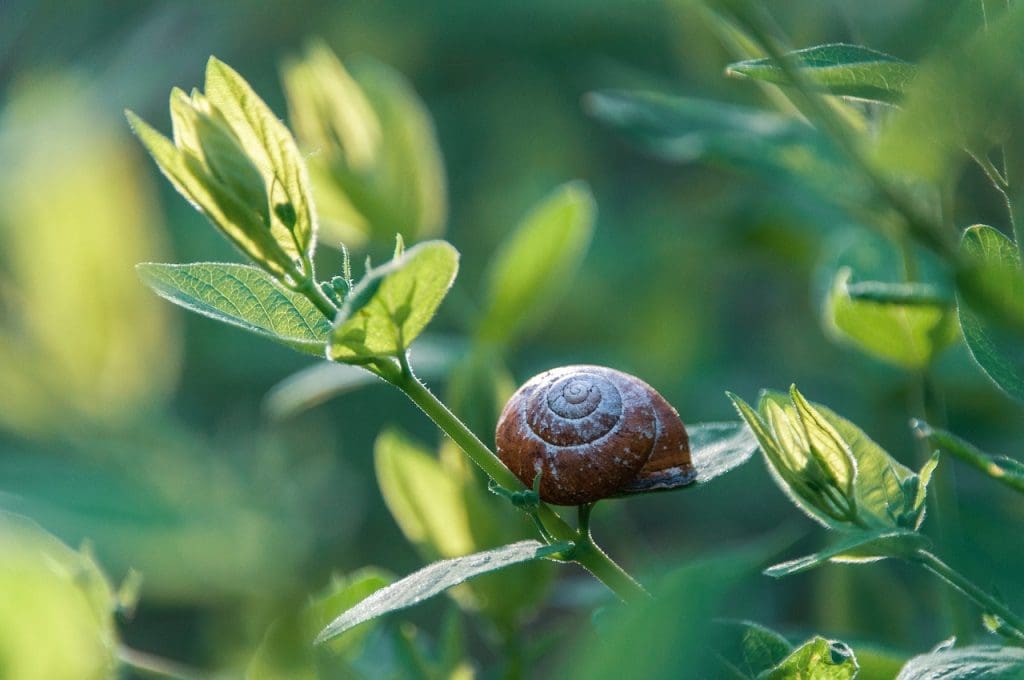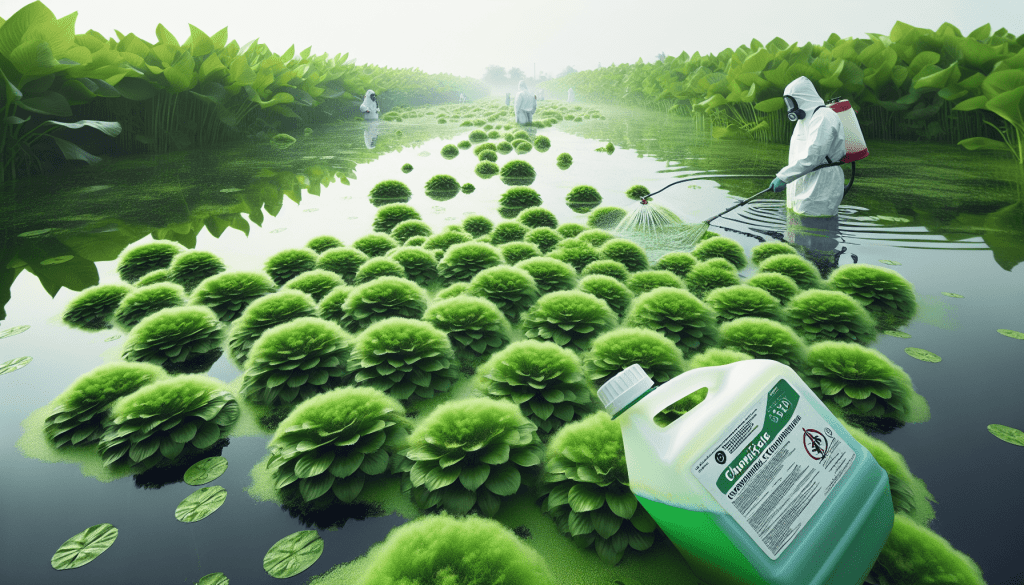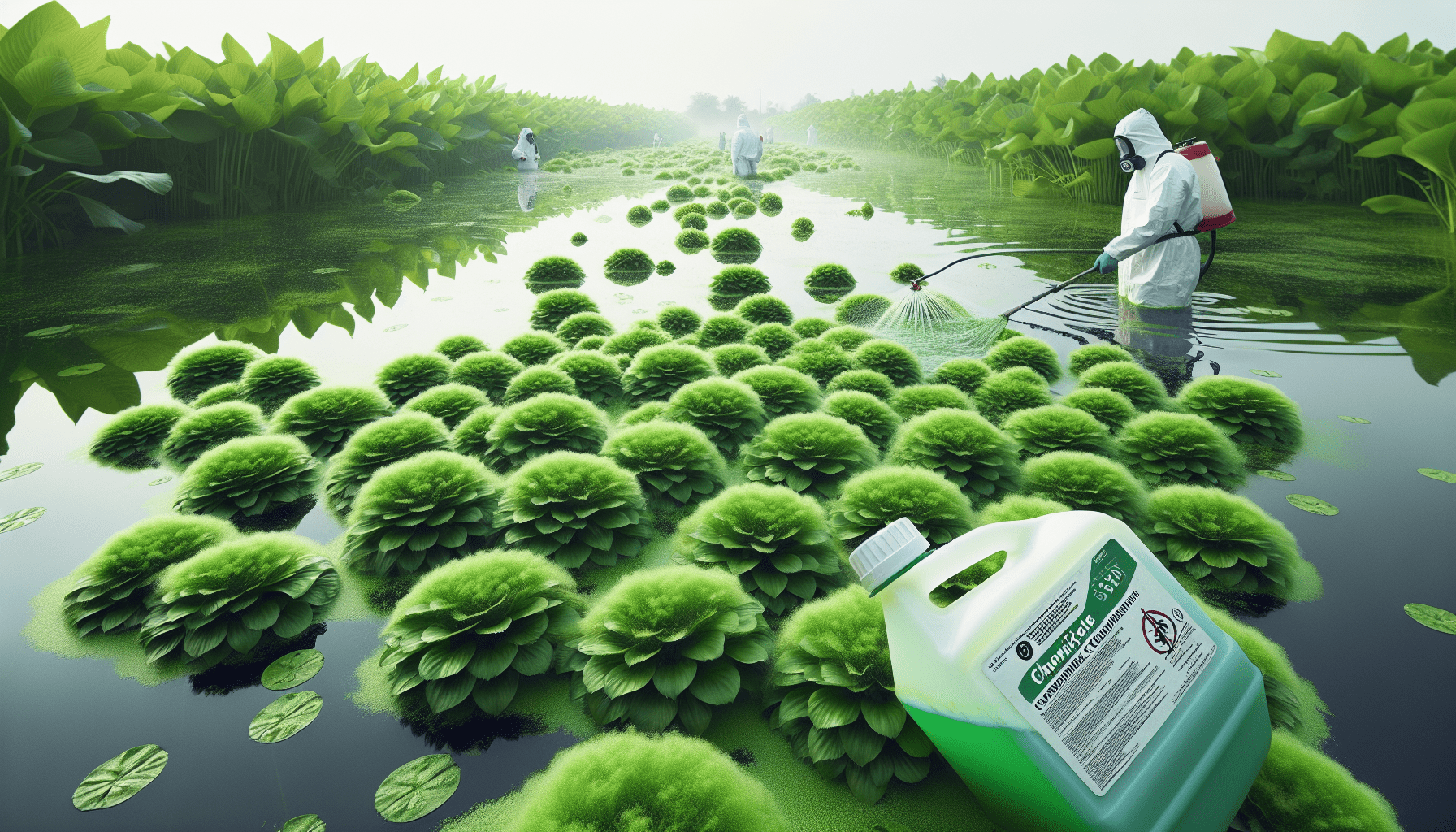In the article “Effective Chemical Control Methods For Alligator Weed,” you’ll discover practical and proven strategies for tackling the persistent and invasive alligator weed that plagues many waterways and agricultural areas. You’ll learn about the various chemical control options available, their application techniques, and the precautions necessary to ensure both efficacy and environmental safety. This guide is your go-to resource for successfully managing and reducing alligator weed infestations, helping you maintain healthier and more productive ecosystems.
Effective Chemical Control Methods For Alligator Weed
Have you ever found yourself battling the persistent and aggressive alligator weed in your garden or waterway? This invasive species can wreak havoc on native ecosystems, outcompete beneficial plants, and make your outdoor space look unruly. Fortunately, there are effective chemical control methods that can help you reclaim your environment. Let’s dive into the world of chemical controls to tackle this resilient plant.

What is Alligator Weed?
Alligator weed (Alternanthera philoxeroides) is an aquatic and terrestrial plant native to South America. It has become a notorious invasive species in many parts of the world due to its robust growth and adaptability. This pesky plant can grow in various environments – from waterways and wetlands to roadsides and gardens.
Characteristics of Alligator Weed
One of the most notable traits of alligator weed is its rapid growth. It has hollow stems that can float on water, and its leaves are elliptical and opposite. The plant produces small white flowers, and its roots can grow in both submerged and terrestrial conditions.
| Characteristics | Description |
|---|---|
| Origin | South America |
| Growth Habit | Aquatic and terrestrial |
| Stem | Hollow, can float on water |
| Leaves | Elliptical, opposite |
| Flowers | Small, white |
| Root System | Adaptable, grows in submerged and terrestrial conditions |
Why Control Alligator Weed?
While alligator weed may seem like just another weed, its impact is far-reaching. From hindering water flow in irrigation systems to outcompeting native vegetation, controlling it becomes crucial.
Environmental Impact
Alligator weed can form dense mats on water bodies, which impede water flow and alter habitats for wildlife. In terrestrial areas, it can dominate landscapes, reducing biodiversity by outcompeting native plants.
Agricultural and Economic Impact
The presence of alligator weed can severely affect agricultural systems. It can clog irrigation channels, reduce the quality of grazing land, and become a nuisance in crop fields. Economically, managing this weed can be costly for both individual landowners and large agricultural operations.

Chemical Control: An Overview
When it comes to managing alligator weed, chemical control is often the most effective method. This approach involves using herbicides to target the weed, either preventing its growth or outright killing the plant.
Types of Herbicides
There are various types of herbicides you can use to control alligator weed. They differ in their mode of action, persistence, and safety.
- Systemic Herbicides: These move throughout the plant after application, targeting all parts, including the roots. Examples include glyphosate and imazapyr.
- Contact Herbicides: These affect only the part of the plant that they come into contact with, making them less effective for this kind of weed which requires thorough removal. Example: diquat.
| Type of Herbicide | Mode of Action | Example |
|---|---|---|
| Systemic Herbicides | Move throughout the plant, affect all parts | Glyphosate, Imazapyr |
| Contact Herbicides | Affect only the part they touch | Diquat |
Factors to Consider Before Applying Herbicides
Before you go ahead and apply a herbicide, there are certain factors you should consider to ensure effectiveness and safety.
Herbicide Selection
Not all herbicides are created equal. You need to select a herbicide that is specifically effective against alligator weed. Consult product labels and possibly a local extension service to find the most appropriate option for your situation.
Environmental Considerations
Applying herbicides near water bodies can have unintended consequences on aquatic life. Always choose products labeled for aquatic use if you are treating alligator weed in such environments. Additionally, be mindful of the wind, rainfall, and temperature conditions as these can affect the application’s effectiveness.
Safety Measures
Herbicides are potent chemicals, so personal safety should be a priority. Always follow the label instructions, use protective gear such as gloves and masks, and store chemicals out of reach of children and pets.

Effective Herbicides for Alligator Weed Control
Let’s take a closer look at some of the most effective herbicides for controlling alligator weed.
Glyphosate
Glyphosate is a systemic herbicide that is highly effective against alligator weed. It is absorbed by the leaves and then translocated throughout the plant, killing it from the roots up.
How to Apply
When using glyphosate, it’s crucial to follow the manufacturer’s guidelines. Typically, a 1-2% glyphosate solution is recommended for alligator weed control. You can apply it using a sprayer for larger infestations or a sponge applicator for spot treatments.
Pros and Cons
| Pros | Cons |
|---|---|
| Highly effective systemic action | Non-selective, can affect non-target plants |
| Cost-effective | Requires careful application to avoid drift |
| Can be used in both aquatic and terrestrial areas | Multiple applications may be needed |
Imazapyr
Imazapyr is another systemic herbicide, known for its long-lasting effectiveness. It is especially beneficial for aquatic environments since it remains active in the soil for an extended period, providing prolonged control.
How to Apply
A typical mixture for imazapyr involves a 1-2% solution. Use a sprayer to apply the herbicide thoroughly to the alligator weed, ensuring full coverage. Avoid application during windy conditions to prevent drift.
Pros and Cons
| Pros | Cons |
|---|---|
| Long-lasting effectiveness | Can be expensive |
| Suitable for large infestations | May affect non-target vegetation |
| Works well in aquatic environments | Soil retention can be both a positive and a negative aspect |
Diquat
Diquat is a contact herbicide that provides quick, visible results. However, it does not translocate, meaning it only affects the parts of the plant it contacts, making it less effective for comprehensive alligator weed control.
How to Apply
Apply a 0.5-1% solution using a sprayer. Ensure thorough coverage of all visible parts of the weed. Multiple applications may be necessary since diquat doesn’t affect the root system.
Pros and Cons
| Pros | Cons |
|---|---|
| Fast-acting | Limited to contact areas |
| Good for spot treatments | Does not affect the root system |
| Less likely to affect non-target species | Multiple applications needed |
Step-by-Step Guide to Herbicide Application
Applying herbicides correctly is key to controlling alligator weed effectively. Below is a step-by-step guide to help you get started.
Step 1: Identify the Weed and Scope of Infestation
First, make sure you correctly identify alligator weed. Then, assess the extent of the infestation to choose the most suitable control method.
Step 2: Choose the Right Herbicide
Based on your specific situation—whether you are dealing with an aquatic environment or a terrestrial space—choose the most appropriate herbicide as discussed earlier.
Step 3: Prepare the Herbicide Mixture
Follow the manufacturer’s instructions to prepare your herbicide solution. Always mix in a well-ventilated area while wearing protective gear.
Step 4: Application
- Spot Treatments: For smaller infestations or individual plants, use a sponge applicator or handheld sprayer to apply the herbicide. Make sure to thoroughly cover each plant.
- Large Scale Treatments: Use a backpack sprayer or a large spray rig for widespread infestations. Ensure even coverage across the area.
Step 5: Monitor and Reapply
After the initial application, monitor the area for signs of regrowth. Depending on the herbicide used and the extent of the infestation, multiple applications may be necessary.
Step 6: Follow Up
Implement regular follow-up treatments and inspections to prevent reinfestation. Consider integrating other weed control methods to supplement your chemical controls.
Integrating Chemical Control with Other Methods
While herbicides are effective, integrating them with other control methods can offer a more sustainable approach to managing alligator weed.
Mechanical Control
Mechanical methods, such as manual removal or mowing, can be used alongside herbicides. This approach is particularly useful for small infestations or when immediate results are needed.
Biological Control
Biological control involves using natural enemies to manage weed populations. For example, the alligator weed flea beetle (Agasicles hygrophila) has been successful in some regions. These approaches work best in concert with chemical treatments to provide long-term control.
Preventative Measures
Preventing the spread of alligator weed is crucial. This includes properly disposing of plant material, monitoring your property for early signs of infestation, and promoting healthy, competitive vegetation.
Common Mistakes to Avoid
Even with the best intentions, mistakes can happen when trying to control alligator weed. Here are some common pitfalls to avoid:
Incorrect Herbicide Selection
Make sure you are using a herbicide that is effective against alligator weed. Using the wrong product can be a waste of time and money.
Improper Application
Whether it’s applying too much, too little, or at the wrong time, improper application can reduce the effectiveness of the herbicide. Follow the manufacturer’s guidelines closely.
Ignoring Safety Precautions
Always use personal protective equipment (PPE) and follow safety guidelines. Failure to do so can lead to health risks for you and others around you.
Lack of Follow-Up
One application often isn’t enough. Neglecting follow-up treatments can allow the weed to regrow and even become resistant to the herbicide.
Conclusion
Controlling alligator weed might seem like a daunting task, but with the right chemical methods, you can manage and even eliminate this persistent plant. By carefully selecting the appropriate herbicide, considering environmental factors, and following a detailed application process, you can effectively reclaim your garden or waterway. Remember, combining chemical methods with mechanical, biological, and preventative measures offers the best chance for sustainable control.
If you stay diligent and follow these guidelines, you’ll find that your fight against alligator weed is not just manageable but can indeed be won. Happy gardening, and may your landscapes remain beautiful and weed-free!
